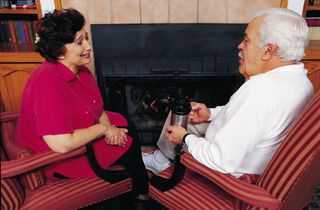

There are some people who have an issue with deciding how to allocate their assets after they pass away. A common issue is emotional or moral paralysis. After they worked with their attorney to draft the documents, they freeze when it’s time to sign on the dotted line.
Another issue arises when a person is estranged from his or her children.
And there are those who—believe it or not—fear that somehow if they make a will, they’d die. It is sort of like if they ignore the inevitable, it will never happen. Crazy, right? Do you think that if you don’t draft a will, then you could live indefinitely?
Another challenging issue is the decision of a parent that makes them feel like they’re favoring one child over others. And there may be good reason: perhaps one can manage money better than another, or a child is married to someone the parents don’t like or trust or maybe the child has an addiction issue.
Because the emotional challenges make it hard for some folks to think straight about much of this, the best approach is to work with an experienced estate planning attorney who can take some of the emotional baggage out of the equation.
These conversations may indeed have psychological ramifications, especially where there is substance abuse, fear of dying or a sense of entitlement.
An estate planning attorney can help to create an analytical and logical approach to estate planning and financial preparation that will help with discussions about heirs and allay fears of the unknown.
Reference: Wilmington Biz (June 6, 2017) “Keep Mental Hang-Ups From Sabotaging Estate Planning”


